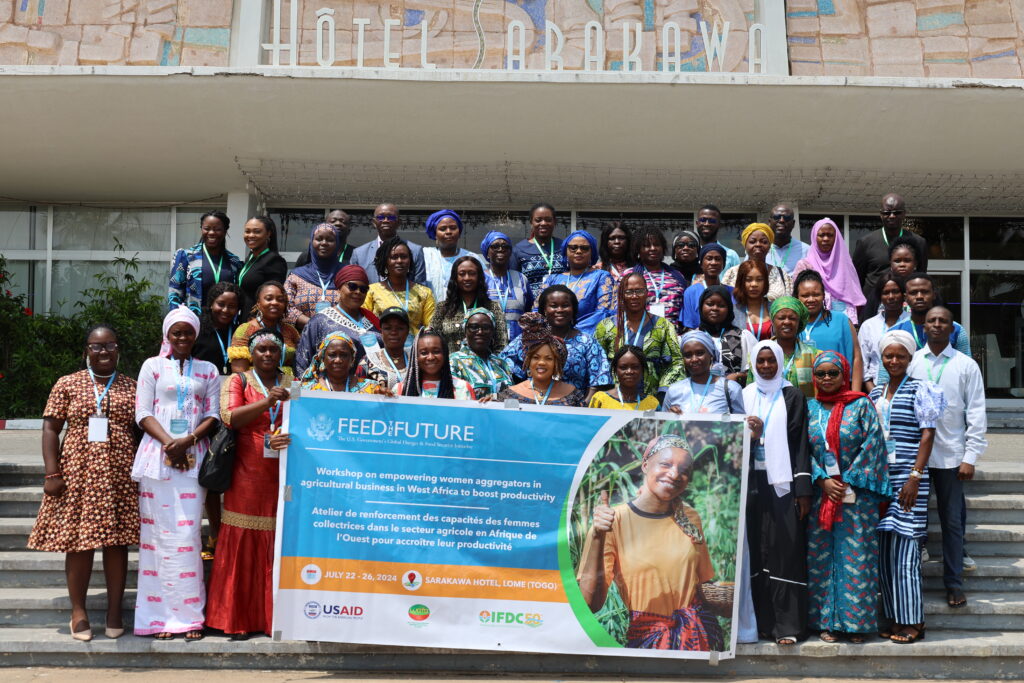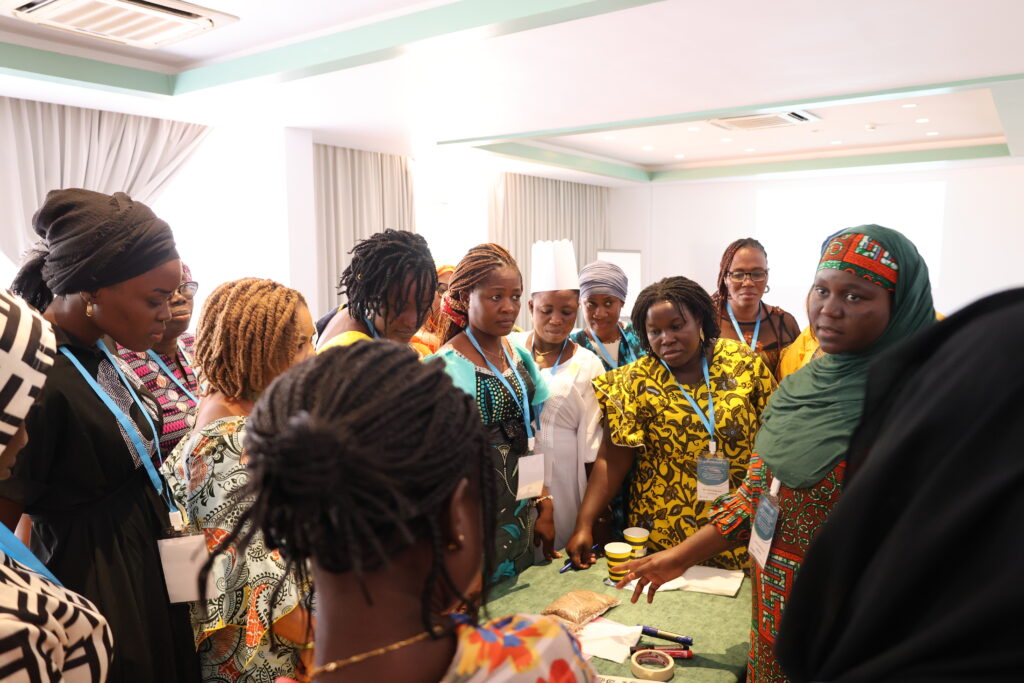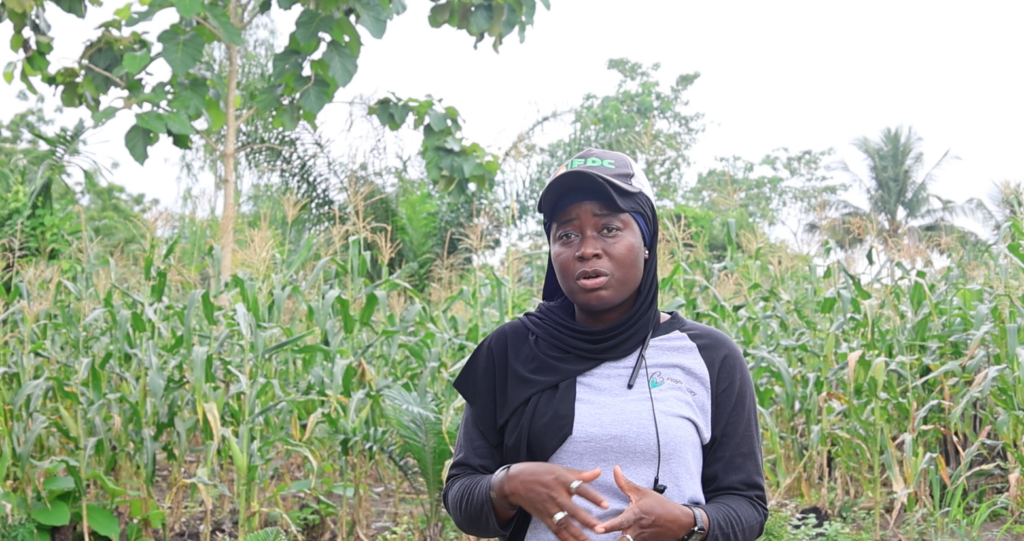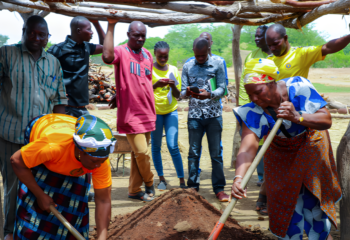
The Enhancing Growth through Regional Agricultural Input Systems (EnGRAIS) Project for West Africa organized a capacity-building workshop for 37 women from 13 West African countries in the agricultural sector from July 22-26 in Lomé, Togo. The aim of the workshop was to equip these women with new knowledge that will help them increase their yields and incomes since, compared to men, youth and women have less access to agricultural knowledge and technological innovations. The training was designed to help fill this gap, enabling women to increase their productivity and income.
During the five days of training, the concept of agricultural input packages was presented, including agroecological contexts, recommendations for seeds and fertilizers, and good agricultural practices. Participants were also introduced to the use of the Fertilizer and Seed Recommendations Map for West Africa (FeSeRWAM) platform and its mobile application as a tool for improving agricultural productivity. Finally, the training provided participants with practical examples of the 4R Principles of Nutrient Stewardship (right source, right rate, right time, right place).
“Before this training, we used to farm without following good practices, because we were uninformed about them. I discovered a lot of innovative methods during the training. I’m going to apply what I’ve learned to increase my productivity. And above all, I’m going to pass it on to the women farmers in my network, so that it will have a greater impact.”
Beauty lily nonviavo, president of maize interprofessional organization in aneho, togo
Each session was punctuated by practical exercises designed to help participants gain a better understanding of each tool and then share this knowledge with the women in their grassroots associations. The exercise on the 4R Principles of Nutrient Stewardship used illustrations and diagrams to demonstrate fertilizer calculations, including how much fertilizer to apply per plant, how much fertilizer to apply per hectare, and timing fertilizer application. After FeSeRWAM training, the women recommend that the list of crop varieties be further expanded and that there be a means of taking user feedback into account.

“Honestly, before this training, I used to take any fertilizer and apply it to any plant, depending on the quantity I had available. This training was very detailed and helped me understand how to choose the right fertilizer and how to calculate the amount of fertilizer to use per plant, per hectare. It was really great. For me, the 4Rs will inform my future farming activity,” stated Oluwadamilola Awe, President of DDEE Farms, based in Ibadan, Nigeria.
The EnGRAIS workshop culminated in a visit to the Elavagnon Cooperative in Afagnangan, southern Togo, where the participants shared their newly acquired knowledge with the members of the cooperative, which specializes in corn and tomato production.
The participants now face the challenging task of passing on the knowledge they acquired during the Lomé training to as many people as possible.
Florence Maloba Dorley, Executive Director and co-founder of the Organization for Women Empowerment, a Liberia-based non-governmental organization focused on underserved women, asserted, “On our return to my country, we will be organizing training sessions for the women of the various cooperatives we work with. The aim is to ensure that they in turn master these tools and are able to use them even in our absence.”

The workshop marks a significant step forward in empowering women across West Africa with essential agricultural knowledge and practices. Through the EnGRAIS Project’s initiative, supported by USAID, these 37 women have gained valuable insights into the use of the tools necessary to enhance their productivity and income. As they share this newfound knowledge within their communities, their efforts promise to drive positive change in West Africa’s agricultural landscape and agricultural practices across the region.
The Feed the Future Enhancing Growth through Regional Agricultural Input Systems (EnGRAIS) Project for West Africa is one of the many assistance programs supported by the American people through the United States Agency for International Development (USAID).






